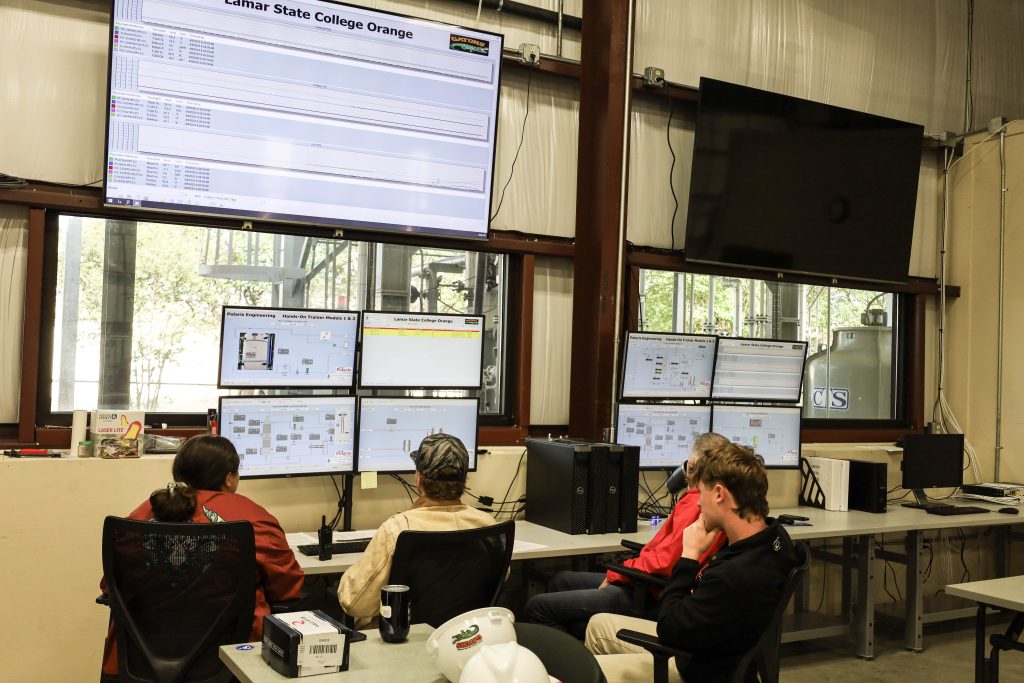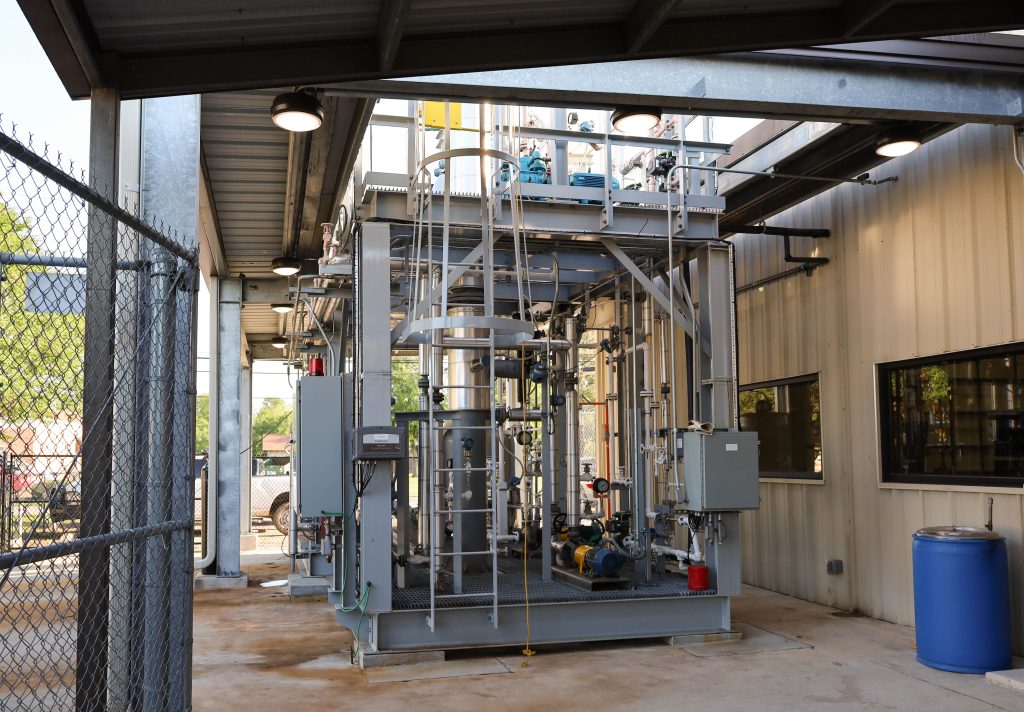

Investing in our community also means investing in the next generation workforce. One way we stive to do that is by bridging the gap between classroom learning and real-world industrial experience.
As we look at how students at Lamar State College Orange (LSCO) are benefiting from the Hands-On-Training (H.O.T.) Unit made possible with a $1.325 million donation we made two years ago, we’ve also learned the unit has contributed to rising enrollment in LSCO’s Process Technology program.
“This unit has been revolutionary for how we teach process technology,” said Tony Bramblett, one of LSCO’s Process Technology instructors. “It offers innovative ways to tie real-world applications directly into coursework, creating a richer, more effective learning experience.
 Learning by Doing: Training That Goes Beyond the Textbook
Learning by Doing: Training That Goes Beyond the Textbook
Standing at an impressive 35 feet high, 24 feet long and 11 feet wide, the H.O.T. Unit is the largest of its kind at LSCO. It has played a significant role in the school receiving endorsement from the North American Process Technology Alliance (NAPTA) and has also served as a model for other colleges exploring similar training solutions.
Since becoming operational in August 2024, the H.O.T. Unit has served dual-credit high school students from Little Cypress-Mauriceville, Orangefield, and Bridge City high schools, as well as adult learners attending evening classes at LSCO. The unit brings textbook lessons to life by offering hands-on training with the same systems used in the field — from control rooms and safety gear to mechanical processes and operations simulations.
“I really love the hands-on training we get with this unit. It’s way easier than reading about it in textbooks,” said Angel Mendoza, a senior at Little Cypress-Mauriceville High School.
Fellow student Priscilla Mercer added, “Books describe these systems, but using it hands-on really makes you realize how important this stuff is.”
The H.O.T. Unit has been fully integrated into LSCO’s Process Operations 2 and 3 curriculums, offering students realistic simulations that mirror the types of environments they’ll work in after graduation.
More Than a Model — A Milestone 
In addition to supporting the curriculum, the H.O.T. Unit is used by industry partners — including Golden Triangle Polymers — for new hire training, commissioning practice, and safety procedures. It has strengthened job-site safety training, allowing students to practice proper use of personal protective equipment (PPE), safe tool handling, and protocol adherence in a realistic setting.
“All this is just a simulation of them actually working in the plants,” Bramblett said. “We teach them the safety stuff, dressing the right way, getting here on time, how to use the tools, how to use safety equipment — they’re introduced to all of that.”
A Partnership with Purpose
The H.O.T. Unit reflects a shared commitment between LSCO and Golden Triangle Polymers — one that empowers students, strengthens workforce pipelines, and invests in long-term community success.
Daniel McLemore, Director of Marketing Communications for LSCO, emphasized the value of this collaboration: “The continued partnership with industry leaders like Golden Triangle Polymers reinforces LSCO’s role in shaping the future of industrial training in Southeast Texas.”
As the H.O.T. Unit continues to expand and evolve, LSCO and Golden Triangle Polymers look forward to even greater advancements in hands-on education, industry partnerships, and student achievement. This isn’t just about training — it’s about opportunity, growth, and a bright future for the entire Southeast Texas region.
